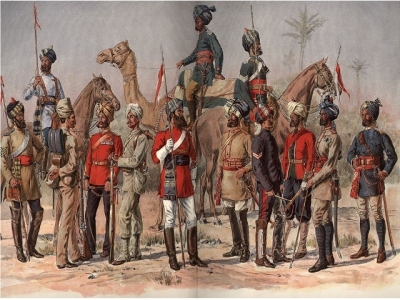
British raj, period of direct British rule over the Indian subcontinent from 1858 until the independence of India and Pakistan in 1947. Other historians point out that British rule of India was maintained by the fact that Indian society was so divided that it could not unite against the British. In fact, the British encouraged these divisions. The better-off classes were educated in English schools. They served in the British army or in the civil service. They effectively joined the British to rule their poorer fellow Indians. There are huge arguments about whether the British created or enlarged these divisions in Indian society (British society was deeply divided by class), or whether the British simply took advantage of divisions that were already present in Indian society. For much of the 1800s the average Indian peasant had no more say in the way he or she was ruled than did the average worker in the United Kingdom.
The British view tended to portray British rule as a charitable exercise – they suffered India’s environment (e.g. climate, diseases) in order to bring to India good government and economic development (e.g. railways, irrigation, medicine). Modern admirers of British rule also note these benefits.
Other historians point out that ruling India brought huge benefits to Britain. India’s huge population made it an attractive market for British industry. In the 1880s, for example, about 20% of Britain’s total exports went to India. By 1910 these exports were worth £137 million. India also exported huge quantities of goods to Britain, especially tea, which was drunk or exported on from Britain to other countries. Then there were the human resources. The Indian army was probably Britain’s single greatest resource. Around 40% of India’s wealth was spent on the army. This army was used by Britain all over the world, including the wars in South Africa in 1899-1902 and the First and Second World Wars. It was the backbone of the power of the British empire. In 1901, for example, the British viceroy (governor) of India, Lord Curzon, said ‘As long as we rule India, we are the greatest power in the world. If we lose it we shall straightway drop to a third rate power’.
Picture Credit : Google
